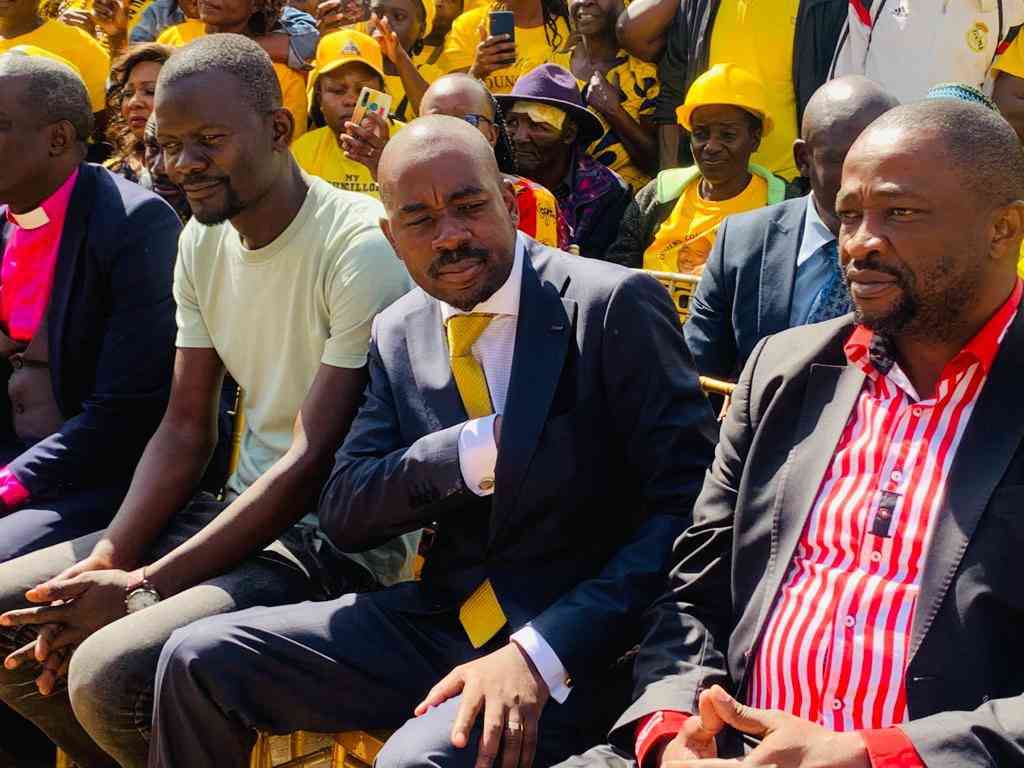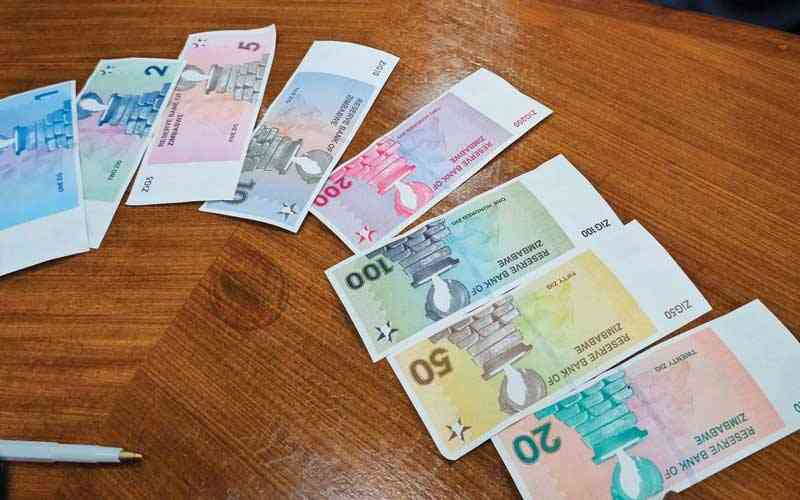
THE rays of the sun blazed down on Glen Norah, a high-density suburb in Harareon the afternoon of August 3.But one shadow was a shade too dark, too permanent.
It lay on the tarmac in the Riverside area near the familiar terrain of Tanaka Grounds.
A young man, his life cruelly silenced in the prime of his years, sprawled face down, half his visage obscured by the grey, lifeless pavement.
His name was Tinashe Chitsunge.
The bright yellow of his Citizens Coalition for Change (CCC) t-shirt was marred by an ominous red - the stain of his own blood - each drop a tragic tale of a future extinguished, of dreams unfulfilled.
His blue jeans, once a symbol of youth and rebellion, were now a stark reminder of a life cut short, his silent protest against the status quo snuffed out in the chilling depths of electoral violence.
Around his head, a grotesque halo of blood splattered on the ground bore a silent, horrifying testament to the brutality he had suffered.
It was a primitive, shocking reminder of the price of political dissent in a land where democracy has become an evasive ghost, slipping further into oblivion with every act of violence.
- Chamisa party defiant after ban
- Village Rhapsody: How Zimbabwe can improve governance
- News in depth: Partisan police force persecutes opposition, shields Zanu PF rogue elements
- Chamisa chilling death threat bishop defiant
Keep Reading
Such cold-hearted acts of violence, which have repeatedly marred Zimbabwe’s political landscape, gravely threaten the rights to freedom of expression, association and peaceful assembly.
Have we really sunk this low, as Zimbabweans?
Have we become so embittered, so entrenched in our political differences that we have forgotten the inherent value of human life?
That we have become so numb to the shrieks of pain, the cries for justice, that we allow our streets to be turned into sacrificial altars of political contention?
Where is the heart of our society, the spirit of ubuntu that once pulsated through our veins, uniting us as a nation?
It has been drowned out by the deafening clamour of violence, the crimson stains on our streets a stark indictment of our failure to uphold the sacredness of life.
Our democracy, once a beacon of hope and change, now trembles under the weight of our own intolerance.
For what is democracy, if not the freedom to express divergent views without fear, without the threat of bloodshed?
Can we still call it democracy when the ballot box is overshadowed by the coffin?
When political parties are marked not by their policies, but by the number of lives they have claimed?
Are we not brothers and sisters first, bound by our shared history and dreams for a brighter tomorrow, before we wear the labels of political parties?
Chitsunge was more than just a victim of electoral violence.
He was a son, a friend, a beacon of hope in a world too often shrouded in darkness.
His life mattered.
His dreams mattered.
And his death should shake us from our complacency, forcing us to stare into the mirror of our collective soul and question the path we have taken as a nation.
A democracy built on violence is not a democracy, it is a tyranny in disguise.
And Zimbabwe deserves better.
We all deserve better.
Late Indian leader Mahatma Gandhi once said: “Non-violence is the greatest force at the disposal of mankind. It is mightier than the mightiest weapon of destruction devised by the ingenuity of man”.
He objected to violence because: “When it appears to do good, the good is only temporary; the evil it does is permanent”.
As Zimbabwe approaches the pivotal moment on August 23, when they will choose their leaders for the next five years, it is imperative to remember the perils of political fanaticism.
No politician, regardless of their promises or charisma, is worth the spilling of innocent blood.
Voters should stand firm against any efforts to be weaponised, manipulated, or influenced into harbouring animosity towards their fellow countrymen in the name of political affiliation.
True democracy thrives on the bedrock of mutual respect and the ability to entertain divergent views without animus.
Regrettably, Zimbabwe's current political climate is fraught with polarisation so intense it threatens the very fabric of the nation.
Civil discourse seems near impossible without individuals being branded as "puppets" or "murakashi."
This deep-seated intolerance, if left unchecked, can lead to devastating consequences.
History has shown that such extreme divisiveness and dehumanisation can be precursors to genocides.
The Rwanda genocide serves as a chilling testament to this.
In a span of roughly 100 days in 1994, an estimated 800 000 Tutsis were massacred by ethnic Hutus, tearing the nation apart and leaving a legacy of trauma, mistrust and pain that will echo for generations. Here at home, the scars of Gukurahundi remain ever-present.
Atrocities committed in Matabeleland and Midlands provinces during the 1980s have left an indelible mark on national consciousness.
The wound, although decades old, still festers, serving as a grim reminder of dire consequences of unchecked political extremism and ethnic divisions.
In the face of these dark historical examples, Zimbabwean voters must remain vigilant against the allure of divisive rhetoric and the seduction of tribal or party loyalties that fosters hatred.
Leaders who choose the path of division, who fan the flames of animosity and who prioritise personal or party gain over the nation's well-being should be seen for what they truly are: threats to national peace and unity.
It is not just about voting for a party or an individual; it is about safeguarding the soul of the nation.
Zimbabweans, like all global citizens, deserve leaders who foster unity, champion development and uphold the rule of law.
They deserve leaders who acknowledge the past, but also work towards a brighter, inclusive future.
This election is an opportunity for Zimbabweans to voice their aspirations and hopes.
They must remember that it is their collective duty to choose leaders who will serve the nation.
While electoral outcomes might differ and while disagreements about policies and governance will naturally arise, the commitment to peaceful coexistence and mutual respect should never waver.
In this, the media also plays a critical role.
In his study titled Electoral Violence and its instrumental logic: Mapping Press Discourse on Electoral Violence During Parliamentary and Presidential Elections in Zimbabwe, academic Tendai Chari argues that the discursive construction of electoral violence by the press in Zimbabwe constitutes more than the mere existence of distinct regimes of truth by ideologically incompatible press groups.
“Instead, it signifies a press at the service of power rather than of democracy,” Chari said.
“The absolute morality imbued in discourses on election violence has the potential to engender anti-democratic practices and a political culture of intolerance in society, particularly in fragile societies bedevilled by social and political divisions.
“By asserting their discursive power through accentuating particular versions of election violence while suppressing others, the press in Zimbabwe became hostages of political power structures, thereby undermining democracy.”
Academic Allen Munoriyarwa, in his study titled Turmoil in the Postcolony: Post-independence Electoral Violence in Zimbabwe and the Relevance of Peace Journalism notes that in Zimbabwe, “…hate spewing, racist, confrontational, polarising and divisive discourses on electoral violence make it difficult to understand the extent of election violence, its subsequent consequences and how, in the long term, it can be arrested”.
He argues that the newspapers he studied sometimes: “Went beyond reporting news on election violence to participating in election violence”.







